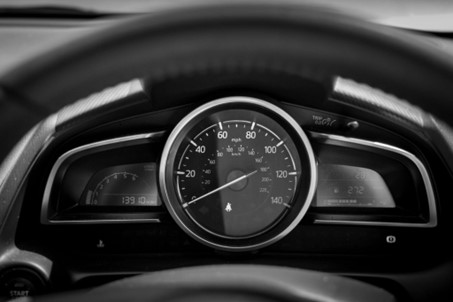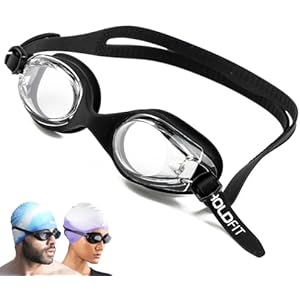For those looking to purchase their first car, the used car market is a great place to start. With used car prices cooling down across the country, there are plenty of good bargains to be found.
However, it’s important to remember that not all used cars are created equal: You’ll need to do your research if you want to make sure you’re getting a good deal.
Here is some advice for first-time car buyers when shopping for a used car. We’ll also answer some common questions about driving a used car and how mileage affects car insurance rates.
First Things First: Do Your Research
When shopping for a used car, it’s important to do your research and know what to look for. This means everything from understanding the type of car you’re searching for to knowing how well it performs after years of use.
Here are some things to consider when determining what model of vehicle to purchase:
- How will the car be used? If it is a commuter vehicle, style might not matter and you might be more inclined to find something cheap that can endure your daily driving. On the other hand, technology like cruise control and lane assist can make the commute easier.
- How much cargo space do you need? If you have a family or plan to travel frequently, then cargo space will be important.
- What is your budget? Obviously, one of the most important considerations when shopping for a used car is how much money you can spend. Always make sure you’re getting good value and don’t be afraid to negotiate with the seller. It never hurts to ask.
- What road conditions do you experience? If you live in an area with rough winters and frequent snowstorms, then you’ll need to find a car that can handle those conditions. This could mean four-wheel drive becomes a necessity, and you must rule out rear-wheel drive vehicles altogether.
There are a million more things to consider when shopping for a used car, but these are some of the key points you should keep in mind to help you get started.
Mileage and Your Used Vehicle
Once you’ve done your research and found what type of vehicle seems right for you, it’s time to start looking at specific cars and figuring out how they compare. This is where things like mileage come into play: How does mileage affect car insurance rates, and how can you use this information to your advantage?
One thing to keep in mind is higher mileage generally means a lower resale value for the vehicle. This means, if you’re buying from a private seller, it may be more difficult to get them down on their asking price.
However, this doesn’t mean you should avoid high-mileage cars altogether. In fact, many drivers prefer to buy used cars with a bit of mileage on them, as these vehicles are more road-tested and may even be more reliable than newer vehicles, depending on the car you purchase.
Top car brands like the Toyota cars from the early to mid-2000s are a great example of this.
How Mileage Affects Insurance Rates
When it comes to your car insurance rates, how much you drive is actually one of the most important factors to consider. Generally speaking, the more you drive, the higher your insurance premiums will be.
However, this doesn’t mean buying a high-mileage, used car automatically means higher rates, it just means you need to be mindful of how much mileage you’re putting on your vehicle and how often you’re using it.
If you can drive a high-mileage car efficiently and use it sparingly, then your insurance rates might not be too much of an issue. Shop around and compare quotes to find the best car insurance for used cars.

What type of used vehicles should be avoided?
There are certain types of vehicles you should avoid when shopping for a used car, no matter how good the deal may seem.
Avoid the Lemon
First and foremost, you should avoid buying a “lemon.” This is a car that has serious mechanical issues or is prone to breaking down frequently. This can be difficult to figure out in advance, but there are certain signs you can look for when inspecting the vehicle.
You can always bring along a trusted mechanic or ask to have your vehicle inspected before committing to the purchase. Many automotive stores like Auto Zone will also run a code scan for free to ensure the vehicle isn’t experiencing any mechanical issues.
The extra work before purchase is well worth it. This goes towards keeping your car from becoming a money pit.
Avoid High-End Models
Another type of vehicle you should avoid when shopping for a used car is something that’s considered high-end, such as a luxury sedan or sports car.
These are vehicles that typically come with higher insurance rates and may be harder to resell for a profit later on. Most buyers don’t necessarily associate used with “luxury” or “sports,” and aged luxury vehicles tend to lack reliability.
The maintenance costs associated with luxury vehicles tend to increase with age, as well. Luxury cars require luxury budgets, and there’s more room for error that goes into making them that may go unaccounted for in the final product.
Avoid Vehicles With a Sketchy Past
Has this vehicle been involved in past accidents? How about a flood or some other natural disaster that caused significant damage unbeknownst to its original owner? A car background check is vital to ensuring your vehicle is safe to purchase.
When inspecting a used vehicle, it’s important to look at the vehicle’s history report and check its VIN number against other databases to see if there are any major issues with the car.
This can help give you a better picture of how reliable or safe the vehicle is, and how much you should truthfully pay for it.
You can also look at the status of the vehicle’s title. If it’s listed as “salvage,” “flood,” or any other type of classification suggesting the vehicle has been in a major accident or has had extensive damage, then it’s probably best to avoid altogether.
Start Your Used Car Search Off on the Right Foot
Overall, if you’re shopping for a used car, it’s important to keep these factors in mind and use them as a guide when making your purchase.
Whether you’re buying from a private seller or a dealership, do your research, get an inspection if necessary, and be mindful of how much mileage is on the car.
With these tips in mind, it’ll be easier to find the perfect used car for your needs and get the best deal possible. There are so many advantages why we should consider buying used cars.

Luke Williams writes and researches for the car insurance comparison site, CarInsuranceComparison.com. His passions include insurance and helping others get the best deals on used cars.





Be First to Comment